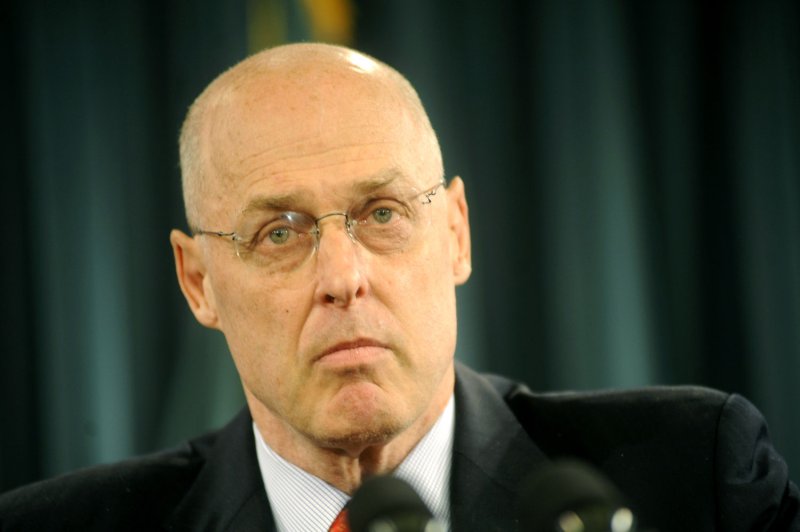Treasury Secretary Henry Paulson delivers remarks on the economy and the financial rescue package at the Treasury Department in Washington on November 12, 2008. Paulson said the goal for plan would be to support financial markets which supply consumers credit, such as credit card debt, auto loans and student loans. (UPI Photo/Kevin Dietsch) |
License Photo
WASHINGTON, Nov. 14 (UPI) -- A bailout plan for beleaguered U.S. automakers is unlikely before the end of the year as Democratic congressional leaders say they don't have the votes.
Industry experts say they fear at least one of the three Detroit automakers will fail if a bailout isn't passed when Congress returns to Washington next week for its lame-duck session, The New York Times reported Friday.
Despite opposition at the White House and among congressional Republicans, Democratic leaders said they may move ahead with efforts to provide $25 billion in emergency aid for the car companies.
The $25 billion package would be in addition to the already-passed $25 billion in low-interest loans to help automakers retool their facilities to make more fuel-efficient cars. U.S. Treasury Secretary Henry Paulson and President George Bush expressed reluctance to use funds from the $700 Wall Street bailout, saying the package was passed to help financial institutions.
"The financial situation facing the Big Three is not a national problem, but their problem," said Sen. Richard Shelby, R-Ala., the ranking Republican on the Senate Banking Committee.
A General Motors spokesman said automakers are "ready and willing" to work with Congress.
"We hope all parties recognize there's a pressing need to preserve the domestic auto industry and the jobs and nation's competitiveness that's tied to the industry," GM spokesman Greg Martin told the Times.















